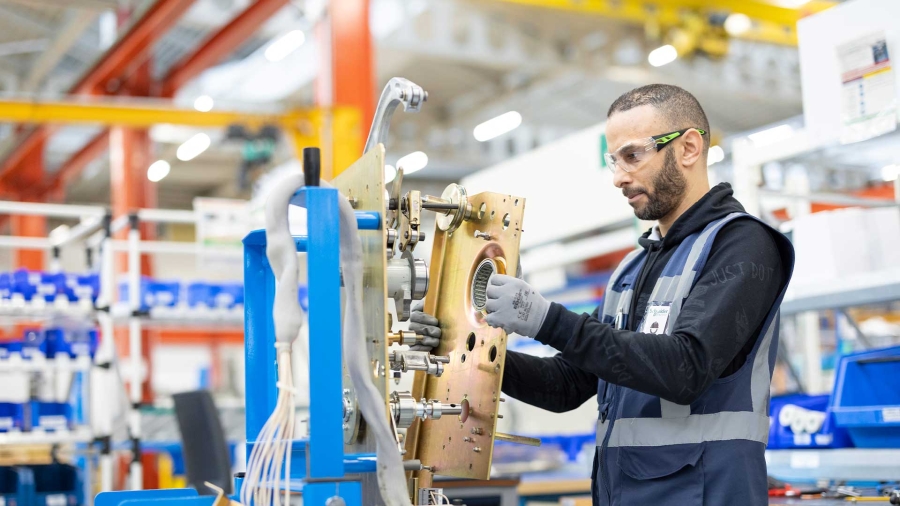Today’s business leaders can be overwhelmed by choice and complexity. They know that they must undertake digital transformation initiatives to remain competitive and become more sustainable. On their way to automate processes, adopt new technologies or business models, and improve customer experiences, they are often exposed to the complex array of hardware and software on the market and an increasing number of competing technology providers.
The challenge is real: over two thirds of all digital transformation efforts end up failing. While there are many reasons why these initiatives don’t succeed in delivering expected business outcomes, I suggest focusing on three key elements to tip the scale in your favor: collaborate in an ecosystem, pivot with your customer needs in mind, and empower your people to drive the change.
Ecosystem thinking in a digital and electric world
To improve profitability, sustainability, customer experience (CX) or other objectives of an organization’s transformation, it’s crucial that they innovate in partnership with technology providers. This need is particularly acute when it comes to successfully going beyond digital “pilot projects”—according to the World Economic Forum, more than 70% of industrial businesses are still in pilot phases of their transformation, with only a select group of manufacturers that can reap the benefits of deployment at scale in their plants and escape the “pilot purgatory”.
This is where choosing the right provider makes all the difference. Businesses should look beyond the promises and look for a partner that has experience of similar projects and whose vision and values are fully aligned with theirs. Only then will they avoid a long, drawn-out development process, missed milestones, and ultimately failed digital transformation programs. Meanwhile, they should embrace purpose-made digital platforms that make it easy to collaborate, experiment, and deliver insight that will inform the organization’s future strategy.
Sustainability and efficiency – products of partnerships
The good news is that businesses increasingly recognize the importance of forging partnerships on the journey to greater efficiency and sustainability –both for themselves and their customers. A recent IDC study commissioned by Schneider Electric found that 96% of companies are either already or considering co-creation with vendors to develop new digital products and services for sustainability and efficiency. Once that happens, the benefits start to flow: according to Accenture, companies that integrate digital and sustainable transformations into their operations and value chains are 2.5 times more likely to be among tomorrow’s best-performing businesses than those who don’t.
The accelerated digital transformation and collaboration on open digital platforms has been driven by the need of businesses to help the world recover from the pandemic, and to build back better. At the same time, there is a growing need for tailored, specialized solutions that businesses find difficult to develop themselves. Increasingly, organizations understand that successful innovation depends on partnerships. Which is why we are seeing that more and more people turn to Schneider Electric Exchange, the digital ecosystem where businesses can find partners that understand their needs and have a proven track record in delivering similar projects successfully.
The pathway to scalable, sustainable success
When business can demonstrate the power of partnerships to deliver their sustainability and digital transformation projects, it will act as a catalyst for many other sectors of the economy to innovate, collaborate, and decarbonize.
No-one can fight climate change alone, just like no-one can innovate alone. We believe that sustainability can go hand in hand with recovery and progress —and that with the right partnerships and digital solutions, businesses can grow at scale while also helping bring net zero within reach.
Change is in the air and digital transformation projects –done right –will not only make the enterprise more sustainable and profitable, but will also help them become more agile and better prepared to adapt to whatever the future throws at them. Digital ecosystems, where organizations can forge partnership networks with tried-and-trusted technology providers, will be a crucial element in the sustainability (r)evolution.














